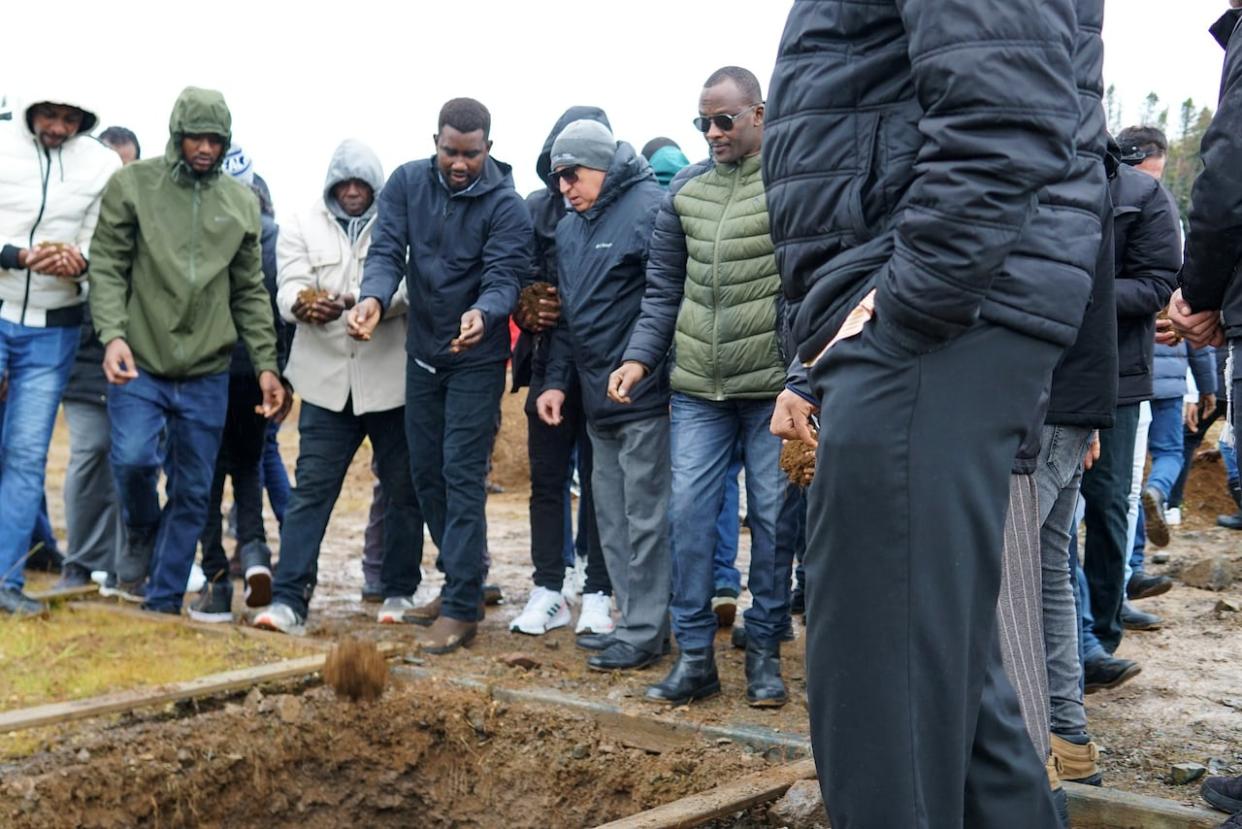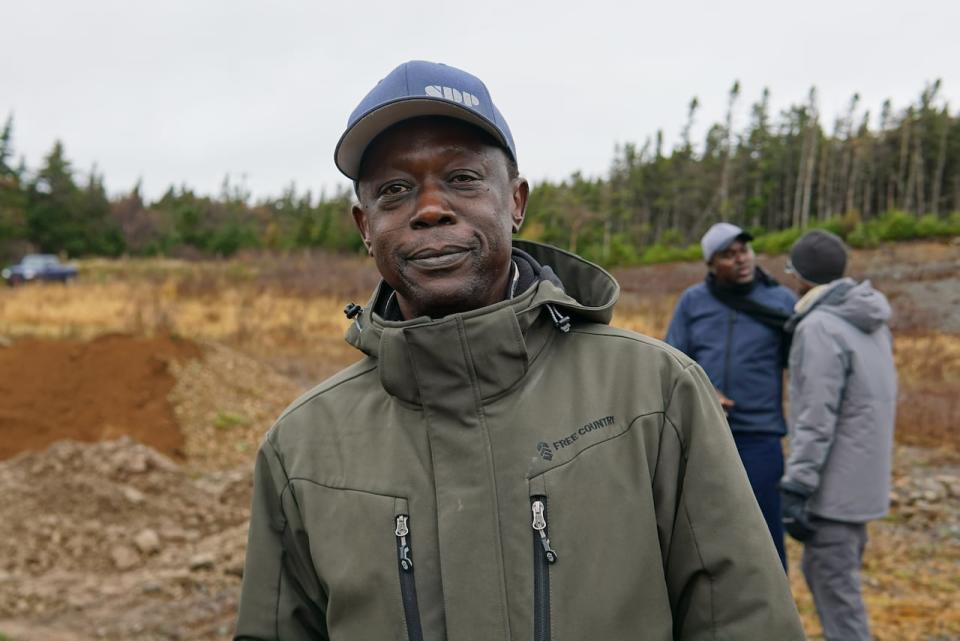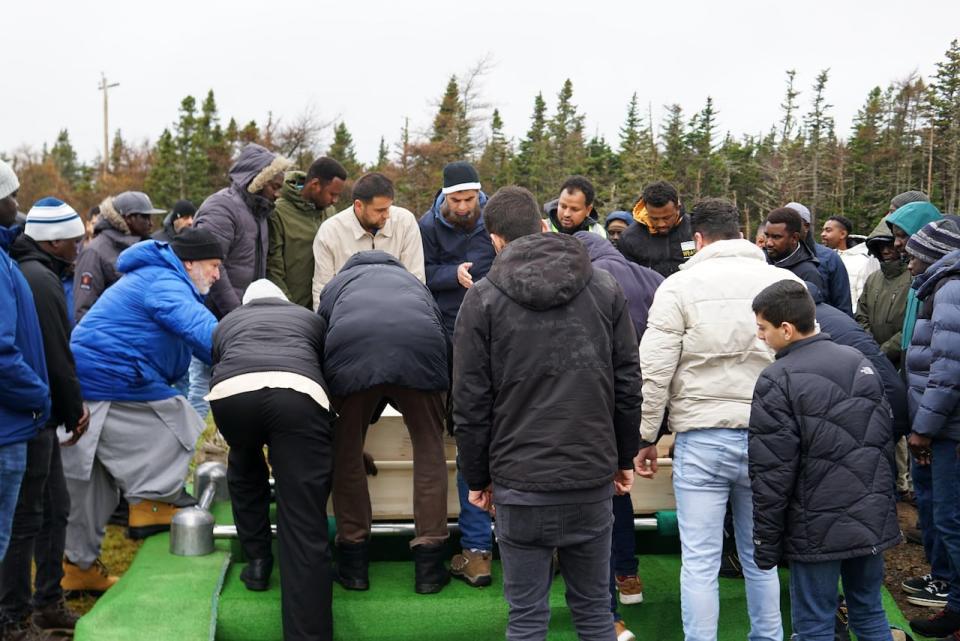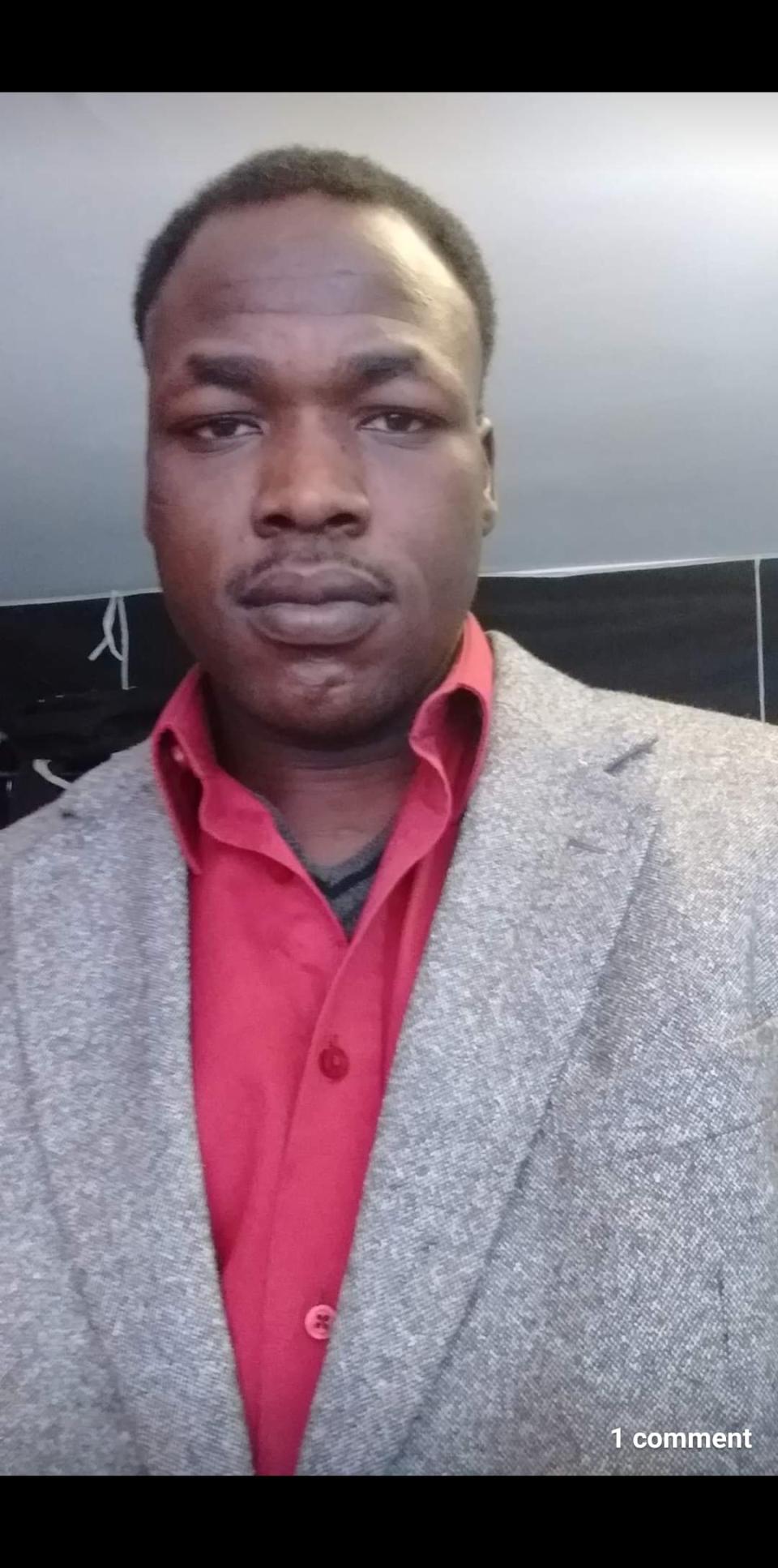Sudanese man shot by police finally laid to rest

About 80 people stood in high winds and rain Sunday morning as Omar Mohammed's casket was lowered into the ground at the Muslim Association of Newfoundland and Labrador cemetery, five months after he was shot and killed by police.
"I think it is very beautiful to see that [turnout] because it has been a long time coming," said Zaid Kafi, a member of the local Sudanese community, who helped organize the service.
"In Islam, to honour the death is to bury them as soon as possible."
The Muslim and Sudanese communities turned out to pay respect to Mohammed, a man most had never met.
For a while, Mohammed's funeral seemed out of reach because of policies at the Office of the Chief Medical Examiner, said Murtada Elhaj, who is also a member of the Sudanese community.
Mohammed, 38, moved to Canada as a refugee in 2014 after experiencing the horrors of war as a child solider in Darfur. His mental health struggles led to his first interaction with police and the criminal justice system two years later, when he was hospitalized under the Mental Health Care and Treatment Act.
Mohammed was later convicted of sexual assault, assaulting a peace officer with a weapon and possessing a weapon for a dangerous purpose. He was wanted by police at the time of his death.

Zaid Kafi is a member of the local Sudanese community who helped arrange a funeral for Mohammed. (Ariana Kelland/CBC)
According to court filings, a constable with the Royal Newfoundland Constabulary shot Mohammed June 12 after he threw a hammer and reached for a knife. Mohammed was inside a provincial government income support office at Regatta Plaza on Elizabeth Avenue in St. John's.
No details or findings have been released from the independent police watchdog yet.
However, in an emailed statement, director Mike King said the primary investigator has submitted his investigative report to King for review.
"The report and file are now under my review for determination as to whether a charge will be laid," King said in an email Monday morning.
Tracked down mother at border of Chad, Sudan
For months after the shooting, Mohammed's body lay unclaimed at the medical examiner's office.
Elhaj said that was because the office needed consent from his next of kin.
The problem was he didn't have any family in the country. Roommate Choul William said Mohammed believed no one from his family was still alive.
"There are a lot of regulation here Canada," said Elhaj, adding he was grateful the medical examiner's office eventually allowed Mohammed's body to be released for burial.
With the help of the Sudanese and Muslim communities across Atlantic Canada, Elhaj said, they were able to find an uncle at a refugee camp in Chad and his mother in a village on the border of Sudan and Chad.

Men attending Mohammed's funeral offer a prayer as they lower his casket into the ground at the Muslim Association of Newfoundland and Labrador cemetery on Bauline Line. (Ariana Kelland/CBC)
"Luckily we found someone from the same area, and they went far away, like, around 50 kilometres, to get [his mom] and they informed her that her son died and they told her that she has to come to the refugee camp to get the formalities," he said.
"It's not easy for his mom to hear that news and … it's not a normal death. He was shot by the police, and that also makes it more hurtful for his mom."
His mother was taken to a refugee camp to sign papers, which were approved by the medical examiner, Elhaj said.
"That's why it took a long time for his mom to get to the camp, to get the paper signed and stamped and send it to us and with the videotape to confirm that this is his mom."
The Office of the Chief Medical Examiner did not immediately respond to questions from CBC News.

Mohammed, 38, moved to St. John's nearly a decade ago. (Submitted by Catherine Pretty)
Kafi and Elhaj said any efforts to make it to the funeral were worth it.
"Since he got no family here, it is very important for us as a community to come together and to take care of the burial," said Kafi.
"Thankfully today is kind of closure," added Elhaj, "but we hope for a better closure to know a lot of things that we just don't know yet, but we just need to bury our brother … and we thankfully did that."
Download our free CBC News app to sign up for push alerts for CBC Newfoundland and Labrador. Click here to visit our landing page.


